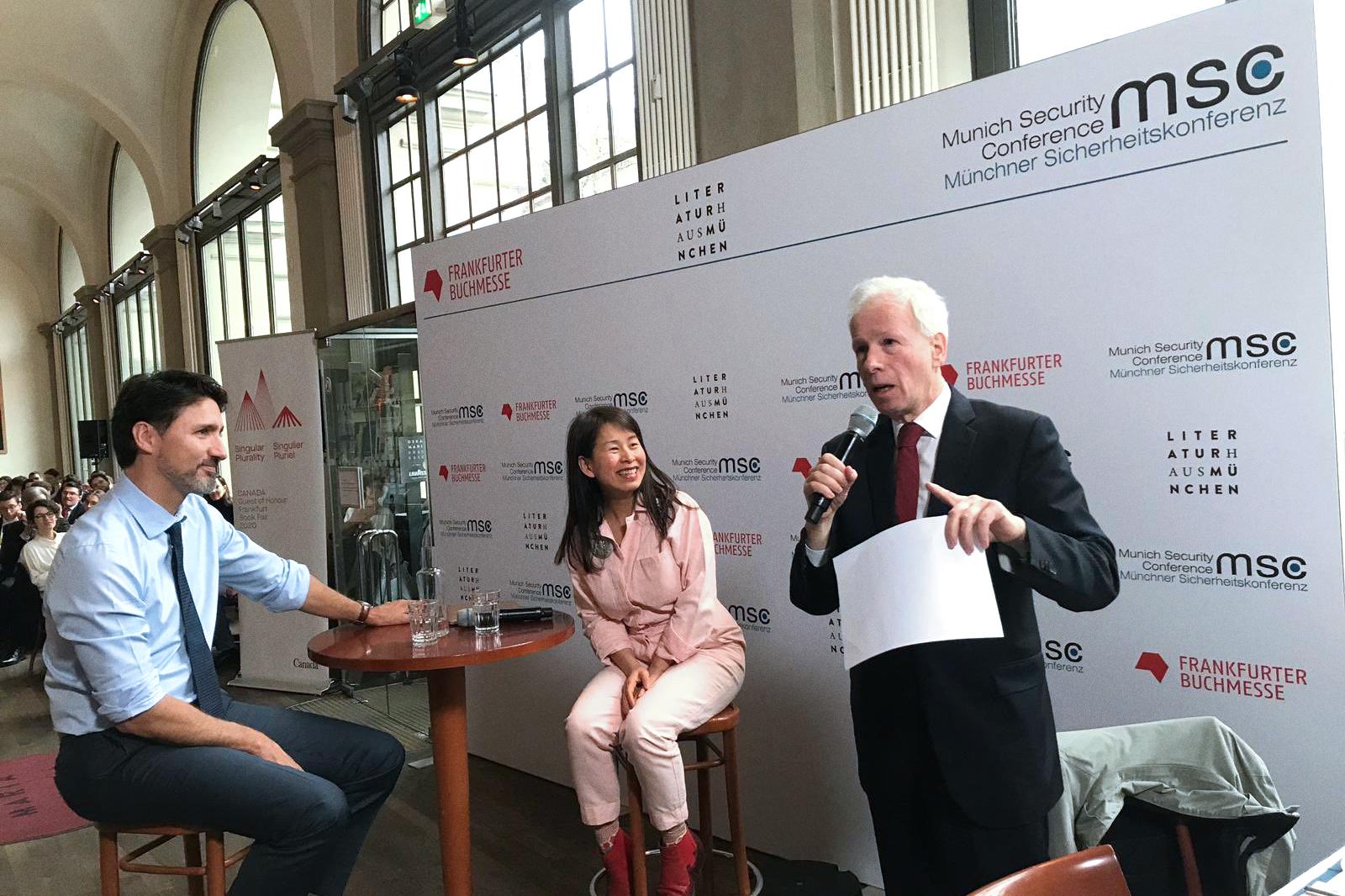Canada’s ambassador to Germany was “Minister for National Unity” in his home country. In an interview with Diplomatisches Magazin, he talks about his experiences and the conditions for successful integration of immigrants to a new home country.
DM: What has been your political experience with homeland look like?
H.E. Stéphane Dion: When I entered politics in 1996, I became the National Unity minister of my country. In my province Québec, many people wanted to separate from Canada. With many other people, I thought that it was better to be Quebecer and Canadian instead of having to choose between these two wonderful identities. My Heimat is Québec, there is no doubt in my mind, and my country is Canada. How lucky I am!
The question in Canada was: Is it possible to have different identities and to consider these identities as complementary instead of contradictory? Is it possible to be Quebecer and Canadian and to see these two identities as an enrichment and not as a contradiction? And to consider it wonderful to have multiple identities? And this is the world of tomorrow. Diversity is a reality in Canada. It is a reality in Germany as well as in most European countries. If diversity is a reality, how can we make it a strength instead of a problem?
DM: And how can we make diversity a strength?
H.E. Stéphane Dion: First, we have to recognize that inclusion is the only way ahead. A national identity is not a rigid conception, frozen forever. It is not, let’s say, you are a Canadian or a German by birth or you are not. If we have this mentality, how can we integrate the diversity of the world? Inclusion is the way by which we will succeed. Diversity is a fact and inclusion is a choice, and the right choice, as Prime Minister Justin Trudeau always says. Without inclusion we have no future, especially Canada, which is so diversified.
For example: for newcomers who come to Germany, once they are Germans, they have the possibility of embracing German culture, German literature, German music, and they could feel that Beethoven, Goethe or Kant are now part of their heritage as much as if their ancestry was from Germany centuries ago. At the same time, they are bringing to Germany something new, something universal, coming from another part of the world, with the chance for Germans to learn that these aspects brought to the country are great. To enrich each other instead of ha-ving mistrust – that’s the key point, to learn from each other. That’s the key priority for me.
DM: How do you convince critics of this concept?
H.E. Stéphane Dion: Open dialogue is necessary, and efforts from both sides are necessary. The people in the country, they must have a welcoming mind and the people coming to the country must also be open to the fact that the country may change them. They come with their roots, but they need to embrace the new country. We don’t want closed communities we want one society, but a society enriched by diversity. That’s the only way Canada can have a future. There are so many newcomers to Canada today. In a city like Toronto, four people out of five are newcomers, from first or second generation, and it is working well – but it is a challenge everyday.
DM: Is it a permanent task for politicians and society to create this kind of awareness?
H.E. Stéphane Dion: Yes. And as a member of parliament, it was part of my daily job. I was a member of parliament in a district on the island of Montréal called Saint- Laurent-Cartierville, a kind of “United Nations” of its own. People are coming from everywhere all over the world. And my job was to make sure that everybody understood that we are in Québec and in Canada, and we need to adapt and to welcome each other and to avoid closed communities. I give you an example: One day the library of one of the Jewish communities of Saint-Laurent was burned by criminals. We right away organized a “vigil” and I invited all the leaders of the communities of St. Laurent, including community leaders from the Middle East which have difficulties with Israel. And I said you may disagree in other parts of the world, but in Canada we are all brothers and sisters and if a community is under attack we are there and we show our solidarity. I phoned each of them and said: If you are my friend, I will see you there to support the Jewish community. And they came. They probably would not have come if I had not phoned them.
It is a very demanding job. My wife will tell you that during my 22 years as member of parliament she can count on her fingers the weekends I had free.
To make sure that you lead people to each other you tell them: here in Canada we are all together shoulder to shoulder, that’s the way the country will have a future. It is not easy to do that but it is very necessary.
DM: You have lived in Germany for over four years now. Do you feel a little bit at home in Berlin or does this country still seem strange to you?
H.E. Stéphane Dion: Not strange at all (laughing)! Canadians and Germans have a lot in common. One out of ten Canadians has a German background. The mentality is not so much different, although the history of the two countries is very different. I do not think it’s hard for a Canadian to adjust to Germany and feel comfortable in this amazing country, except maybe for the difficulty in learning the language, and for something else: winters without snow! That’s very difficult for a Canadian. Dark months where you don’t have sun and white snow to compensate for the fact that the sun is not there.
Interview Marie Wildermann

